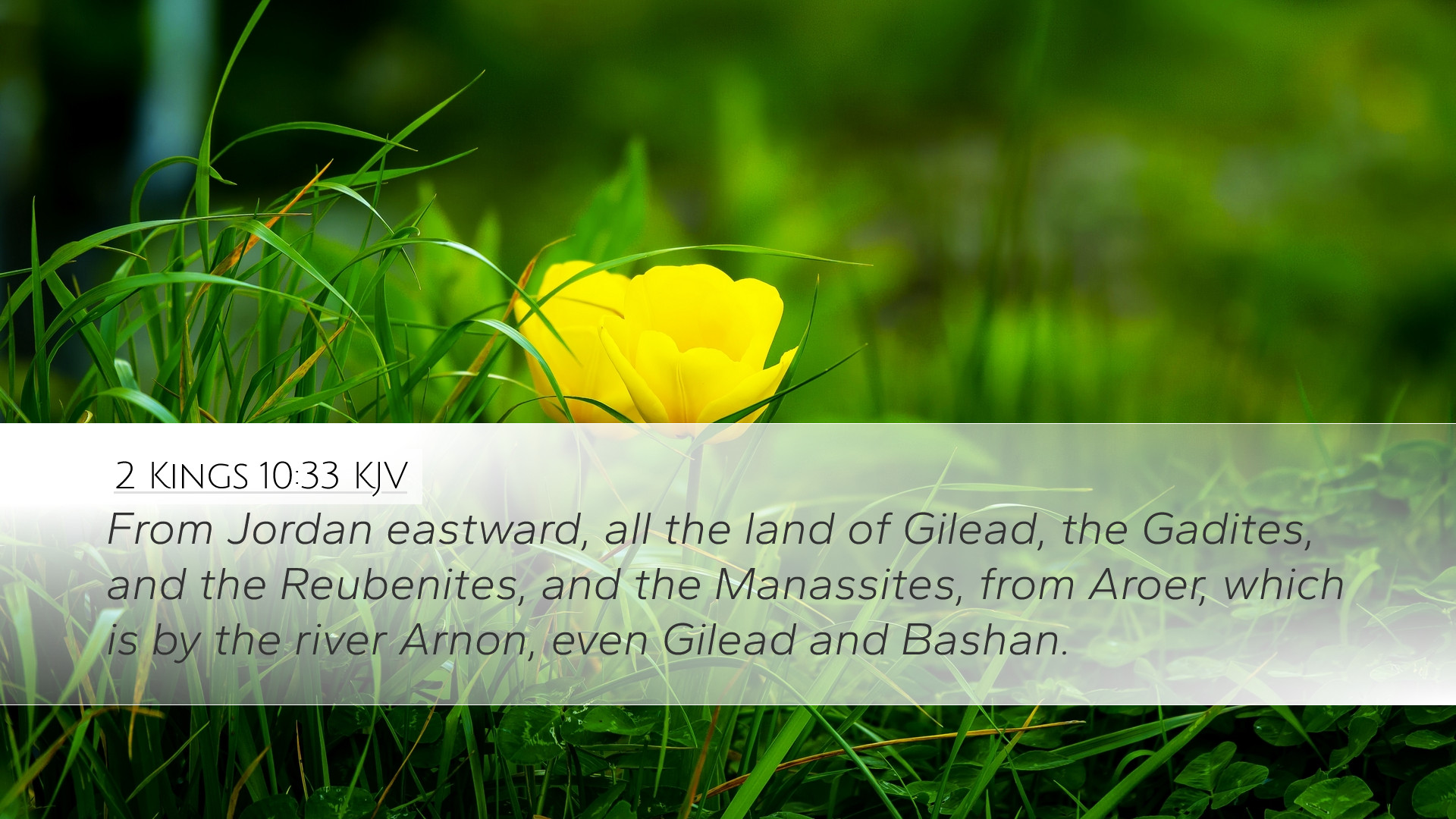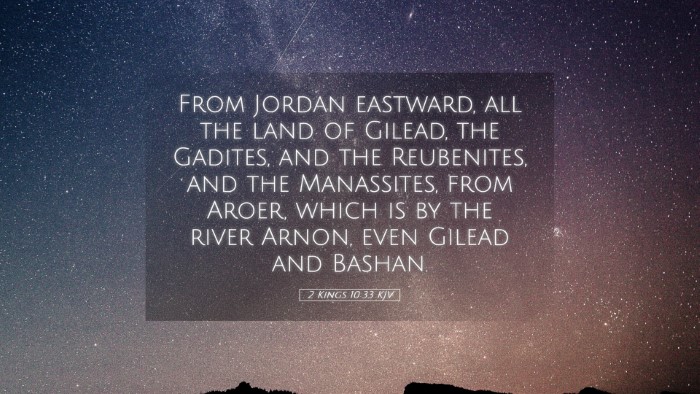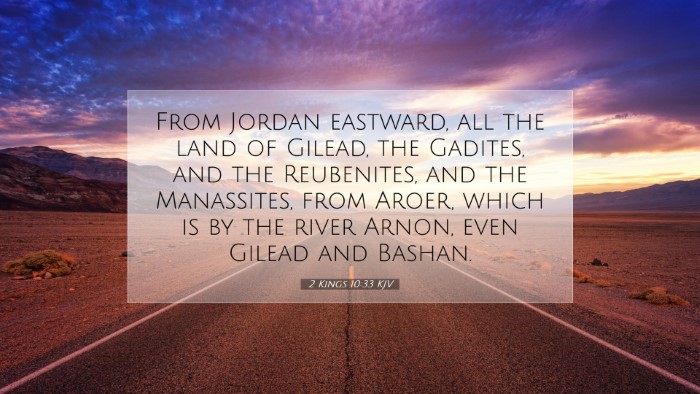Commentary on 2 Kings 10:33
2 Kings 10:33 states: “And from the Jordan eastward, all the land of Gilead, and the Gadites, and the Reubenites, and the Manassites; from Aroer, which is by the river Arnon, even Gilead and all Bashan.” This verse occurs within a larger narrative detailing the end of the house of Ahab and the consolidation of power under Jehu.
Contextual Background
This verse provides a geographical overview that is critical for understanding the territory that was at stake during Jehu's reign. Within the context of Israel’s history, the regions mentioned are significant as they were once part of the Promised Land, settled by the tribes of Reuben, Gad, and half of the tribe of Manasseh.
Historical commentaries often highlight that this area was characterized by its strategic importance and abundance of resources, making it a focal point for both agricultural and military endeavors.
Geographical and Tribal Significance
- Jordan River: The mention of the Jordan River serves as a natural boundary, delineating territory and offering strategic importance in military campaigns.
- Gilead: This region was known for its balm and was often symbolic of healing, both physically and spiritually. The reference to Gilead invites reflection on its biblical imagery, reinforcing themes of restoration.
- Tribal Allocations: Understanding the territories of the Gadites, Reubenites, and Manassites highlights issues of loyalty and governance within the divided kingdom, particularly concerning their alliances during the reign of Jehu.
Theological Implications
From a theological standpoint, this verse encourages deeper contemplation regarding God’s promises to Israel. The allotment of land was not merely a matter of geography but represented divine favor and covenant. Jehu’s governance over these regions underlines the recurring theme of God's providence and the fulfillment of His promises through historical events.
God's Sovereign Plan
Commentators like Matthew Henry emphasize that in God's sovereign plan, even the successes of leaders like Jehu are orchestrated to fulfill divine purpose—ultimately to purge Israel of idolatry and restore a right relationship with God. The complexities of politics in Israel during this time illustrate humanity’s struggle between divine ordination and personal ambition.
Judgment and Mercy
Moreover, this verse invites pastoral reflection on themes of judgment and mercy. Jehu's violent methods in eliminating Baal worship could be interpreted as God's judgment on unfaithfulness, which brings forth a stark contrast when viewed against the backdrop of divine mercy extended to the remnant Israel. The historical narrative suggests the possibility of redemption that includes turning back to God amidst societal decay.
Application for Today's Church
For contemporary pastors and theologians, this passage serves as a reminder of the importance of faithfulness to God amidst cultural challenges. It raises questions about the church’s role in society, encouraging believers to actively engage in their communities while holding firmly to biblical truths.
- Faithfulness: Just as the tribes were called to remain loyal to their covenant with God, modern Christians are similarly called to uphold their commitments to God’s kingdom.
- Engagement: The tensions during Jehu's command reflect the necessity of discerning how to navigate current cultural landscapes while maintaining fidelity to Scripture.
- Hope in Restoration: This scripture affirms the hope for restoration, underlying God's desire for His people to turn back to Him, reflecting on redemptive themes prevalent throughout Scripture.
Conclusion
In conclusion, 2 Kings 10:33 encapsulates significant historical and theological insights that resonate through the ages. It draws attention to the geographical identity of Israel, the importance of divine promise, and the interplay of judgment and grace. The teachings derived from this narrative are timeless, offering profound implications for evangelism, discipleship, and Christian living today.


